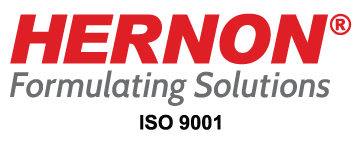Industrial Adhesives and Thermal Compounds for Electric Motors
In the rapidly advancing electric motor industry, reliable bonding, cooling, and protection of components are critical for performance and longevity. Hernon Manufacturing delivers advanced industrial adhesives for electric motors, including thermal compounds for electric motor cooling and industrial potting compounds for electrical components. These solutions are designed to enhance durability and efficiency in demanding applications.
Adhesive Solutions for Electric Motors
Hernon’s HASA 716 and UV ReAct 795 adhesives provide unparalleled performance in bonding motor magnets and other critical components:
- HASA 716: A single-component structural anaerobic adhesive, HASA 716 offers exceptional strength, heat resistance, and vibration dampening. It permanently secures motor magnets and prevents misalignment during operation.
- UV ReAct 795: Engineered for permanent magnet bonding, this UV-curable adhesive provides fast curing, high tensile strength, and resistance to impact and peeling. It cures to a hard, durable surface when exposed to UV light, ensuring secure bonding of motor magnets and other components.
Thermal Compounds for Electric Motor Cooling
Efficient heat management is vital to electric motor performance. Hernon’s thermal compounds fill gaps between heat-generating components and heat sinks, ensuring proper heat dissipation. This prevents overheating, extending the lifespan of motors and maintaining their performance.
Industrial Potting Compounds for Electrical Components
Hernon’s potting compounds offer robust insulation and protection for sensitive electrical components. By sealing and encapsulating parts, these compounds shield against moisture, vibration, and thermal stress, making them ideal for electric motors, sensors, and automotive applications.
Applications:
- Motor magnet bonding
- Automotive battery packs
- Generators and sensors
- Loudspeakers and furniture
Hernon’s adhesives and thermal compounds ensure reliable performance in electric motor manufacturing. Contact us today to explore custom solutions designed to meet your unique manufacturing needs.
Technical Specs
Here are the technical specifications of both HASA 716 and UV ReAct 795 and what makes them the ideal adhesives for permanent bonding.
- HASA 716
Typical Properties Uncured
|
Property
|
Value
|
|
Chemical Type
|
Modified Urethane
|
|
Appearance
|
Amber Liquid
|
|
Specific Gravity @25⁰C
|
1.11
|
|
Viscosity @25⁰C, cP
|
2800-3200
|
Typical Properties Cured
|
Physical Properties
|
Value
|
|
Glass Transition Temperature, (Tg) oC
|
102
|
|
Coefficient of thermal expansion, ASTM D696 (K-1) :
|
|
Below Tg
|
5.6 x 10-5
|
|
After Tg
|
18 x 10-5
|
|
Coefficient of thermal conductivity, ASTM C 177, W/(m·K)
|
0.40
|
Go to HASA 716 product page for a detailed technical data sheet.
- UV ReAct 795
Typical Properties (Uncured)
|
Property
|
Value
|
|
Appearance
|
Off-White
|
|
Viscosity @25⁰C, cP
|
45,000 – 64,000
|
|
Base Resin
|
Modified Acrylic
|
|
Specific Gravity @ 25⁰C
|
1.07
|
|
Solids
|
100% - No Solvents
|
|
Flash Point
|
See SDS
|
Typical Curing Performance
Fixture Time – The time the adhesive takes to develop a shear strength of 0.1N/mm2.
For a 0mm gap, it takes a duration less or equal to 24 seconds, while for a 0.25mm gap, it is 15 seconds or less. In both instances, the bonded sides must be primed using Activator 47.
Curing Time
UV ReAct 795 cures when exposed to UV radiation of 365nm. The higher the UV intensity, the faster the adhesive will cure.
Check UV ReAct 795 Product page for more technical details.
Parting Shot
HASA 716 and UV ReAct 795 go above and beyond in ensuring that electric motor magnets are securely attached and enclosed in motors. Additionally, they serve as versatile bonding agents, with unapparelled permanent sealing and bonding.
